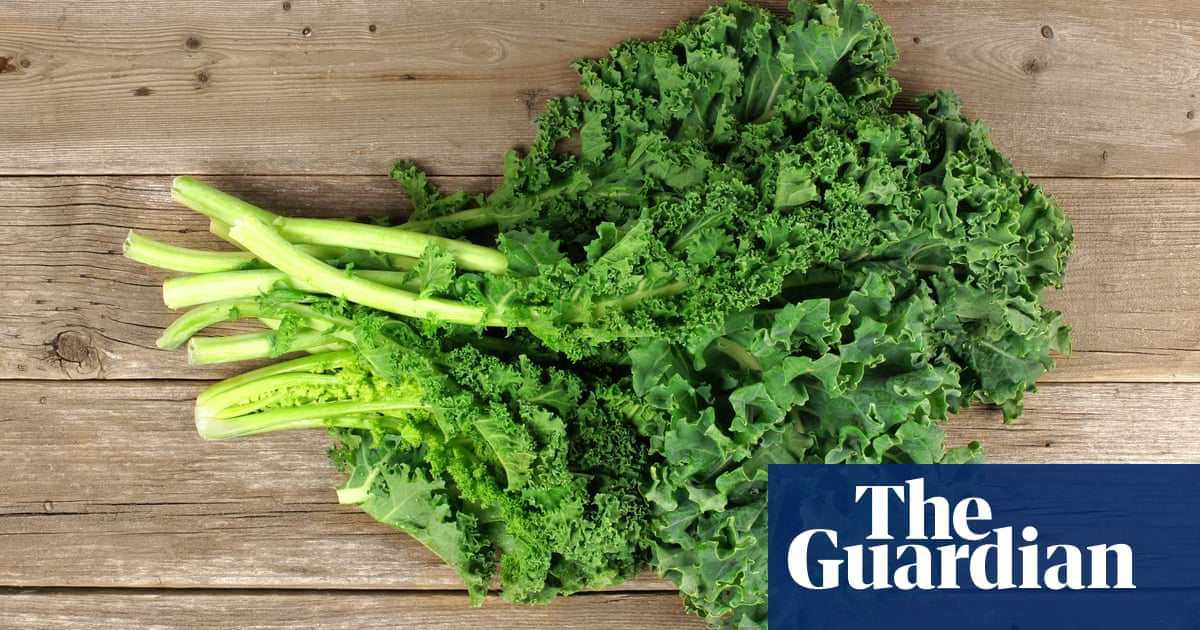Even our health foods are poisoned with this shit. Amazing. Funniest part is they found higher concentrations of PFAS in the organic kale, further destroying any meaning for that label.
Studies have previously found PFAS in vegetables in fields where sewage sludge was laid as an alternative to fertilizer, and the FDA claimed it had “no indication” of a health threat in PFAS it found in vegetables grown in 2018 near a North Carolina PFAS manufacturing plant.
![]()



as much as we all love to accept headlines at face value without any critical analysis, it's worth noting that the publisher of this paper is a one-person NPO that seems mostly interested in de-regulating nutritional supplements.
so, it might be worth looking for replication before you throw out all your vegetables.
also, PFAS is literally in everything now. we made it, put it everywhere, and the decomposers can't unmake it, so it's everywhere because that's how food webs work and why "forever chemicals" are not something we should create.
also, biosolids (sewage sludge that has been treated to reduce the threat of pathogens) are the inelegant solution to the problem of human nutrient consumption (75% of the nitrogen that passes your lips comes out your anus... and coincidentally (cough co-evolutionarily) nitrogen is the limiting element in plant production systems). biosolids are a disaster in the era of heavy metal contamination and forever chemicals. they are a product of having far too many poopers in a limited geographic location. a bear shitting in the woods is fine good. 2.6 million bears shitting within 10 square miles is chemically and biologically toxic waste and a logistical nightmare.
Nutritional supplements are already dangerously unregulated.
the same was true for trees before alien fungus evolved to eat all the piles of wood
Yeah but this is a problem we want to fix now for humanity's sake, not wait eons for mother nature to take care of.
totally, there is no doubt in my mind that fungus will solve this problem the same way they solved lignin in the carboniferous era. but if we're not part of that solution, we might not get to enjoy it as a species.
So… I can keep eating kale? Also, is there any point to the “organic” stuff or is eating the normal stuff okay?
eating produce is gonna be good for you. wash your produce, especially if it's part of the "generally consumed raw" family. peeling them can be a good idea too.
the origin of the organic ag movement had legit critiques of consolidation of food production around chemical companies. the IFOAM founding documents (international federation of organic agriculture movements) had a shitload to say about labor exploitation and worker safety that was dropped when the USDA began developing the regulatory rule for organic agriculture in 1980s-1990s. because who gives a shit about broken down old farmworkers with neurological tremors from chronic exposure to whatever the fuck?
at the time of public comment for the rule, it was the most publicly commented on piece of regulatory language in US history.... and back in 1989, the organic movement was a lot smaller than it is now. my point being, it was a very small but very engaged group of people that made up this movement in the beginning. the focus of the movement, originally, was about protecting natural resources and laborers. but it became, in typical capitalist fashion, about conspicuous consumption and being "safer/healthier" to eat for consumers.
more or less, is food produced using organic principles better for the environment where it was produced compared to "conventially" grown food? that is a controversial topic and the stakeholders are at each others' throats about it. not to mention, the rules adopted by the National Organic Standards Board (NOSB) are constantly under pressure to be more accommodating to "industry". a lot of organic growers stopped fighting for organic as soon as it became a USDA label. a lot more checked out when it accommodated hydroponics. so even the language of "what is organic" is contested and there is a shitload of disinformation or just bunk surrounding it, most of it put out by individuals or institutions with a lot at stake over its growth, one way or the other.
organic is mostly marketing bullshit from what i understand. they just end up using different pesticides a great deal of the time anyway. the main thing is to wash your fruits and veggies thoroughly before eating
not much you can do about the lead and shit